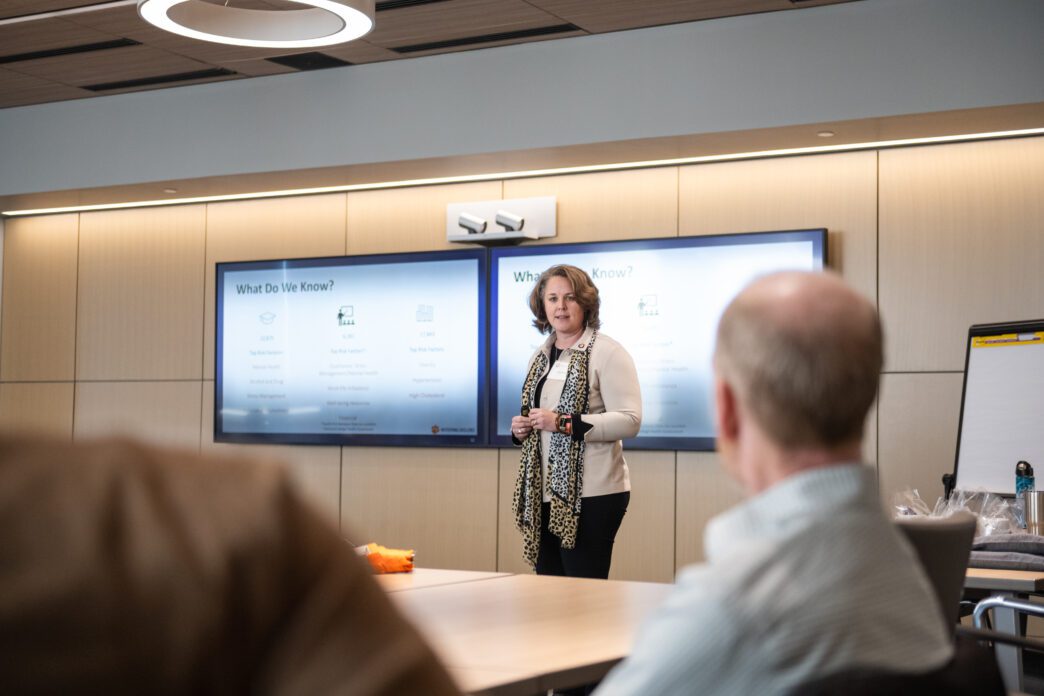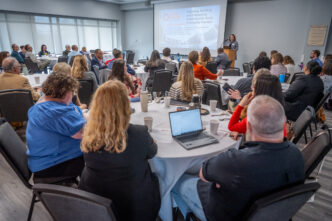October always seems to arrive with its own unique weight. Midterms, fiscal deadlines, end-of-year planning, family commitments, news and the steady drumbeat of fall responsibilities can leave us feeling like we’re sprinting without a finish line. For me personally, my 50th birthday looms and it hangs on the backside of my conscience as I juggle work, life, kids and more. If you’re noticing the pressure, you’re not alone. I feel it too.
What we often forget is stress doesn’t just live in our calendars — it lives in our brains and bodies. When pressure is constant, our nervous system shifts into fight-or-flight mode. That’s useful if we need to react quickly, but over time it narrows our perspective and creates pathways of toxic stress exposure. We lose the ability to see options clearly, listen well or engage in meaningful problem-solving. In short: toxic stress shrinks our capacity just when we need it most.
One antidote is surprisingly simple: how we show up for ourselves and for each other. I say this a lot, but it really does make a difference! Pausing to listen, extending respect and practicing dialogue are not just “nice to haves.” They are well-being practices that help widen our perspectives.
One of my old colleagues at a previous job always used to say, “Assume positive intent.” I have that quote written on a sticky note attached to my computer screen (I’m looking at it right now as I write!). It’s a reminder that when I am frustrated by someone or something that I not only assume positive intent from the person, but I also “assume a posture of positivity” in my own mind. When I look at the situation from a lens of curiosity, I find I am more likely to respond rather than react. Because like us all, I am human, with human feelings that tend to bubble up when I am under pressure.
October is also a good time to hold up a mirror and ask: How am I doing, really? What’s working for me right now? What’s not? Sometimes the most helpful step is simply noticing — and then making a small adjustment. That could mean five minutes outside between meetings, a conversation with a friend or even allowing yourself to rest.
Well-being is not about perfection. It’s about practice. It’s about building rhythms that let us recover, reflect and reconnect. Just like you learned to build a practice of brushing your teeth as a child, you too, have the ability to build new practices to support your well-being and help navigate the pressure this month may bring. I invite you to pause, self-assess, notice what you need and take one small step that supports you. When we do that — individually and together — we create more space for everyone to thrive.
PS: Write it down! Research shows when people write down their health and wellness goals, they achieve better outcomes than those who don’t!
PPS: We’ve created a nifty personal well-being compass to help you identify goals and set targets as part of a well-being development plan here at Clemson.
PPPS: Provost Jones writes about the importance of the Green Crescent Trail in our “Elevate Well-Being” blog series this month! This could be an example of a goal for your well-being compass!








